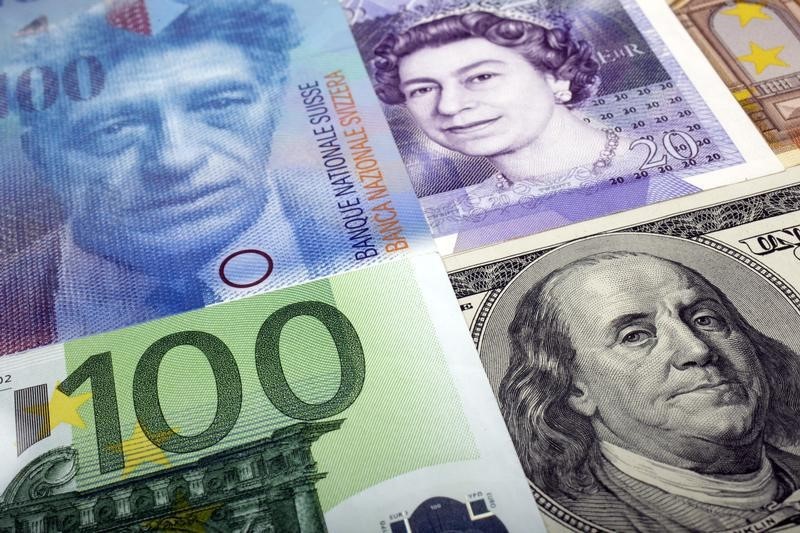Investing.com - The U.S. dollar held steady on Friday, supported by weakness in safe-haven currencies, while the euro remained under pressure from expectations that the European Central Bank will deliver “significant” stimulus next month.
The U.S. dollar index, which measures the greenback’s strength against a trade-weighted basket of six major currencies, inched up 0.1% to 98.05 by 11:08 AM ET (15:08 GMT).
China buoyed risk sentiment after announcing plans for to spur consumption with new economic stimulus, while Thailand offered its own support with a roughly $10 billion plan to pump its own economy.
The action to ward off a slowing global economy boosted investor optimism to the detriment of safe-haven currencies such as the Japanese yen or Swiss franc.
That weakness helped support the greenback even despite a disappointing reading on consumer confidence.
The University of Michigan’s preliminary reading of consumer sentiment for August fell to a seven-month low as growing concerns about the economy dampened their optimism.
The survey conducted this month seemed at odds with a strong increase in July retail sales that was published a day earlier.
Alexander Kuptsikevich, market analyst at FxPro, suggested that the retail sales growth was in fact a “bad sign” for the American economy.
“Consumers may be in a hurry to buy goods before the introduction of new tariffs for supplies from China,” he said.
The euro meanwhile remained under pressure after Finnish central bank governor Olli Rehn called on the European Central Bank to deliver a “significant” stimulus package at the next policy decision in September.
“ECB's Olli Rehn's remarks exacerbated the already battered sentiment for the euro,” Francesco Pesole, FX strategist at ING, said.
Pesole said that market expectations were already aggressively on the dovish side, pricing in a 18 basis point cut at the September meeting.
He also warned against the recent rally in sterling on the back of some positive economic data.
“We think any rally in GBP is likely to be short-lived as the lingering uncertainty about Brexit should discourage investors from jumping on long-sterling positions to play any rebound in risk appetite,” he said.
